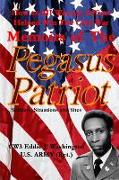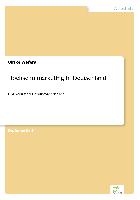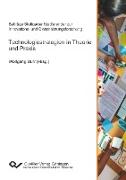Pegasus Patriot: Soldiers, Situations and Sites
BücherAngebote / Angebote:
Pegasus Patriot: Soldiers, Situations and Sites is an autobiographical, historical and enigmatical military memoir of a black Chief Warrant Officer (a rare occurrence), who served in the military intelligence branch of the United States Army. This soldier chronicles his first-person account from his induction as an enlistee (almost a draftee) in Little Rock, Arkansas, until his status changed to officer retiree, 22 years and three months later in Fort Hood, Texas. During that period - July 1962 to September 1984 - he described in detail how he helped the United States win the Cold War, including a number of interesting people, places and predicaments he encountered along the way. He described in an interesting way how his roles, responsibilities and incredible opportunities the Army afforded him changed him forever.This book builds seamlessly from the end of the septuagenarian author's first autobiography, Pegasus: The White Man. The Red Horse. The Black Boy. Pegasus is a 1950s retrospective, while Pegasus Patriot is a Cold War retrospective. While not necessary to do so, readers can gain a much deeper interpretation of Pegasus Patriot, if they read Pegasus before or after reading this book. The author writes, "I will always be a United States soldier. I fought in America's longest war - The Cold War (1945 - 1991). Although, I was issued a rifle, I never fought with bullets and bombs. I was trained in hand-to-hand combat, but never served in a combat zone. I am a Vietnam-Era Veteran, but I never fought in Vietnam. I excelled in electronic combat. My battlefield was worldwide - in the ether. My weapons were very special transmitter and receiver systems. I was an electronic intelligence (ELINT) warrior. I was an interceptor, analyst and jammer. I was a military intelligence officer who performed electronic warfare (EW)." His career began as a member of the former super-secret United States Army Security Agency (USASA), which in 1976, morphed into The United States Army Intelligence and Security Command (USAINSCOM). This command managed the operations of numerous signal collection locations, including the operations of former major field stations such as Field Station Rothwesten, Field Station Augsburg, Field Station Berlin and Field Station Sinop. Soldiers who staffed these facilities preferred to think of themselves (including the author) as Army elite because we worked classified missions and were labeled special category or SPECAT personnel. Other Army branches, such as Combat Arms were not as charitable, often referring to us as 'special signals intelligence (SIGINT) sissies'. SIGINTERS were less pejorative, calling each other 'scope goats', 'ditty-boppers' and 'Monterey Marys' (linguists). There is NO CLASSIFIED INFORMATION is this book. The author served four overseas tours, but never received Overseas Pay. In addition, he was never awarded Hazardous Duty Pay. The most hazardous thing he did was listening to loud white noise for 12 hours a day. He developed tinnitus and hearing loss, neither of which met the criteria for a Purple Heart. During a career that spanned 22 years and touched the terra firma of four continents: Asia, Africa, North America, and Western Europe, the author encountered many unusual characters and circumstances. From Little Rock to London, Boston to Berlin, Ayer to Ankara, the world was his stage, presenting many unusual people, places and predicaments. He discovered many world-class automobiles, including the Ferrari and Rolls-Royce, some were not so distinguished, such as the Gogomobil and Morgan.Pegasus was the name of the unforgettable iconic Mobilgas 'Flying Red Horse' of yesteryear. It sat atop the Little Rock, Arkansas, filling station where the author worked as an attendant from 1954 to 1961, it represented an eclectic village of races, creeds and cultures. Its persona became the author's, providing the basis for his moral compass and a roadmap for his life.
Folgt in ca. 15 Arbeitstagen




